At Our Core: Presenting the FYI on DEI at DSST
Read about DSST’s Early Spring 2022 Diversity, Equity, and Inclusion Journey
“Eliminating...

Read about DSST’s Early Spring 2022 Diversity, Equity, and Inclusion Journey
“Eliminating...
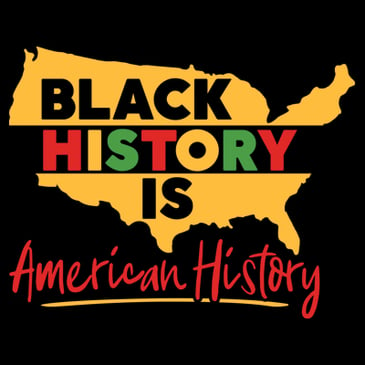
A note from Dr. Aaron J. Griffen, VP of Diversity, Equity, & Inclusion
Some who are versed in...
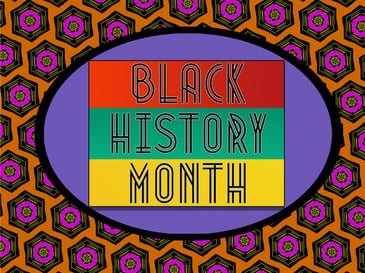
.png?width=365&name=unnamed%20(3).png)
A note from Dr. Aaron J. Griffen, VP of Diversity, Equity, & Inclusion
-3.png?width=365&name=MicrosoftTeams-image%20(3)-3.png)
150 seconds. Months of training, conditioning, memorizing choreography, late practices and...
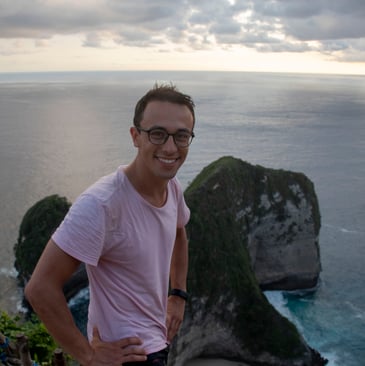
DSST is built on a foundation of educational equity, something which alumni and former DSST teacher...
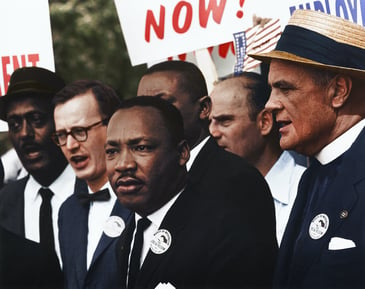
A note from Dr. Aaron J. Griffen, VP of Diversity, Equity, & Inclusion
Reverend Dr. Martin Luther...
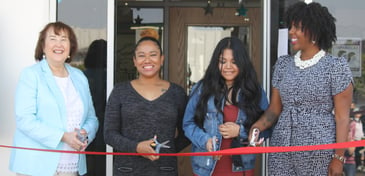
|
We made it! As we begin the new year, we’re reflecting on the numerous high points and bright... |
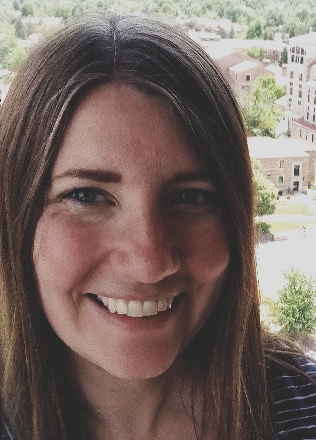
Hi DSST Team, my name is Lauren Jones-Kaplan (LJK), and I was the recipient of the 2020 Core Value...

Hello DSST! My name is Becca Bloch, and I was the recipient of the 2020 Core Value Award for...
Read about DSST’s Early Spring 2022 Diversity, Equity, and Inclusion Journey
“Eliminating educational inequity and integrating schools” remains core to our mission at DSST. Essential to tackling these challenges is the internal work we do to sharpen our own equity lenses as we create more diverse, equitable and inclusive systems. In partnership with our staff, students and families, The Diversity, Equity, and Inclusion (DEI) team remains dedicated to cultivating a school community that welcomes open discussion and self-reflection around these issues. This has been done in many ways, including the continuation of Affinity Groups and campus DEI Liaisons, and the launch of our Trans and NonBinary Youth Advocates. These partnerships have allowed us to reflect on where we have been, assess where we are as a network and revisit our goals for the future.
DEI Team Step Back
During the waning days of October, our DEI team began a series of Monthly Step Backs in order to think through and design a specific DEI Team Vision Statement and Mission Statement. Using a process from Cornell University, the DEI team spent hours combing over what the team’s future workstream should look like, our individual and team frustrations with our work and the present state. On Dec. 6, 2021, the DEI team landed on the following:
North Star and Guiding Belief
Therefore the DEI Service Team at DSST Public Schools’ mission is to foster shared ownership and capacity to build inclusive communities and experiences among DSST staff, students and families that eliminate educational inequity in fulfillment of our vision to center the Human Condition (Vision) in every aspect of our work.
DSST Diversity Equity and Inclusion execution
In the execution of this vision, mission and guiding belief, the DEI service team will ensure a continued DSST focus on our 8 Equity Paradigm Shifts and DSST’s Commitments to Becoming an Anti-Racist Organization as we seek to meet the expectations of the Black Excellence Resolution. To learn about how DSST is meeting the Black Excellence Resolution, click here: Black Excellence Resolution and DSST Public Schools.
DSST Commitment to Becoming an Anti-Racist Organization
This chart below represents a snapshot of how individual schools and Home Office departments are meeting the DSST commitment to becoming an Anti-Racist organization in a specified commitment area. To learn more about how your school, campus or Home Office department, reach out to your DEI liaison and leaders.
| Commitment |
Equity Paradigm Shift |
Network Examples |
| DSST commits to a collaborative partnership with minority and/or Black-owned businesses to cater and support network and school events. |
Equity is Core |
Home Office: Service teams and HO Sparkle Committee partner with Quebec St Restaurant, owned by Ralph for breakfast and lunch throughout the year, versus ordering from chain restaurants. The DEI team has partnered with Comal Family Heritage and Three Sisters for our half-day step-backs and during our Trans Youth Advocacy launch. Cole Campus has local food trucks at back-to-school night and other events, and also partners with parents who make and sell food every couple of weeks to teachers. |
| DSST commits to providing opportunities for safe space for students, families and staff as we work toward becoming an anti-racist organization. |
Space and Voice |
Byers Campus is working to make their community safe for all through a focus on trauma-informed care. Their Trans Youth Advocate team is working to build knowledge so that staff & students are able to make Byers a welcoming space for Trans/NonBinary community members. CV HS has focused its development on shifting staff culture to name and call in one another when microaggressions are happening across team members. Their goal is to build criticality and conscious awareness of how we address and disrupt interpersonal oppression to make our community inclusive Priorities
GVR HS has had multiple opportunities for students to come together and discuss pressing issues. The morning meetings also promote student engagement in identity and equity work. The staff has had multiple opportunities to engage in safe/brave spaces through their 10-part DEI/affinity group series this year. |
| DSST commits to relationship building through partnerships with the entire community to support the social, emotional, and wellness needs of staff, students and families. |
Identity |
CG MS uses the advisory program and morning meetings to provide proactive lessons on conflict resolution, kindness and empathy, in addition to restorative conversations to help resolve conflict among peers. This includes SEL learning groups with our social worker, and staff training and use of restorative practices to resolve conflict. The DEI training focuses on identity work and self-reflection. There are bi-monthly family communications to update students on progress, and professional development for staff on how to partner with families. Elevate HS is constantly looking to partner with community organizations and to give back to the community. So far this year, DSST: Elevate has attended and participated in 3 community events. Elevate has also partnered with a local organization, “Struggle of Love”, to provide a weekly music club that also focuses on students’ mental health. Elevate recently partnered with “The Righteous Project," which strives to provide financial literacy education to students for free. Elevate is actively participating and promoting the organization's fundraiser to our families. All funds go back to the organization to maintain the free programs. MTV HS is continuing the student unions they began several years ago. The school is setting youth input on policy, hiring & school culture. Through the youth voice efforts, MTV HS was one of 17 schools nationally (1 of 2 in Colorado), awarded the First Amendment Press Freedom Award for honoring free expression. |
| DSST commits to the active recruitment and retention of staff of color in the teaching and leadership pipelines. |
Equity is Core |
Talent Acquisition focused on teacher-of-color applications and building the apprentice teacher pipeline. They achieved their goal of sourcing over 300 applicants who identify as teachers of color. Their apprentice teacher goal was that 50% of our cohort will identify as BIPOC. Currently, they are at 3 hires, and 1/3 are BIPOC. Currently, our overall staff retention is at 91.2% while the staff of color retention is sitting at 88.6%. GVR MS develops communities of students and staff. In order to truly feel a sense of safety and belonging, they need to experience our school through the lens of both unity and affinity, and the two do not live in opposition. GVR garners different value from each one and a diverse community is able to authentically offer both:
|
| DSST commits to examining curriculum, instruction, and assessments for potential bias, oppressive frameworks, and reductionist reasoning. |
Equity Mindsets |
Humanities & Spanish has been doing significant work to rework its curriculum and assessments. They realized this must be paired with inner and mindset work for their new leadership team. The team has been doing the deep inner work necessary to heal historic harm and inspire the Humanities & Spanish team to move toward a vision that centers on equity. STEM revisited its curriculum and assessments to ensure inclusivity and dismantle oppressive classroom practices and looked at gender inclusivity in bio exams - bringing in training for teachers this March. They also created example units and lesson plans around current events and justice-themed phenomena to model for teachers and school leaders how to design a more inclusive curriculum. The STEM team is conducting Equity Audits - to check for equitable access to rigorous STEM programming. They created a dashboard that looks at students’ enrollment in STEM courses by demographic data to strategically identify gaps to address for next year’s programming and enrollment into these courses. They also did a data dive into AP course enrollment and test scores to check for gaps by demographic as well as students who qualify for special services. |
| DSST commits to identify and address any racial inequities and disparities across all data points. |
Equity is Core |
AST team’s efforts to really push themselves to have a DEI-lens role in each meeting, to examine school-wide instructional, cultural and staff data from a multitude of lenses, and to address some of the incidents that have come up with regard to hate speech and discriminatory remarks or actions head-on with students. A plan to progress in these areas is ongoing, and the frequency of data examination is the first place to start in terms of having a continuous pulse on the students’ data so that leadership can work to address disparities. Home Office Data Team, along with the Polaris team, makes sure that all data reporting includes demographic factors such as race/ethnicity, ELL status, SWD status and incoming proficiency (performance band). MTV MS has implemented an SEL development strand in their advisory, and they are working on revamping their discipline process to be more trauma-informed, which has worked to reduce their volume of punitive discipline despite still seeing gaps for students of color but the overall volume across the board has gone down drastically. |
| DSST commits to providing network and school-specific Diversity, Equity and Inclusion development and resources that include culturally responsive and relevant, anti-racism, and trauma informed care. |
Intentionally Inclusive Systems |
Noel MS began the year focused on Staff Identity work as multiple staff members were new to Noel and DSST as a whole. This was followed up with a session on Culturally Responsive and Relevance to mitigate deficit thinking. CG HS developed a deliberate focus on student-led development for faculty and staff to include the Black Student Alliance providing a session on Identity and Mental Health and up next, La Raza to share second language learner experiences across intersectional identity markers. Additional professional development has focused on developing culturally sustaining lessons and integrating a more diverse curriculum. CV MS is continuing its campus-based Affinity Groups and using these spaces to unpack the way race impacts school initiatives. They are also working with their culture team to disaggregate data and ensure intervention systems are used as a learning opportunity for both staff and youth. |
DEI Service Team Commitment and Journey
The work of the DEI Service Team remains committed to building on foundations that laid in partnership with the National Equity Project from 2016 to 2020, with the main goals of:
If you would like to get involved in DEI work at DSST, there are many avenues! You can join an Affinity Group, or contact Aaron Griffen, Ash Gelb or Mercedes Blea-Davis to initiate a specific program within your school community. There are also many DEI resources already available at your fingertips, including tons of articles, videos, books, websites and audio to help us learn and reflect on the many aspects of identity, diversity, equity and inclusion.
This work is never complete, and there is always something new to learn, so please feel free to connect with your DEI liaison on any ideas you may have. We are all experts in this work in our own unique way. The more we can reflect upon and discuss with each other our unique viewpoints, and listen to those of our colleagues, the closer we will get to growing our equity mindsets, making our schools an even more welcoming place for our vibrantly diverse team of students and staff and eliminating educational inequity.
Yours in the work,
Aaron, Ash and Mercedes
DSST DEI Service Team
Topics: Community Stories
A note from Dr. Aaron J. Griffen, VP of Diversity, Equity, & Inclusion
Some who are versed in History, Geography, migrant patterns and Human Geography, may struggle with the notion that Black History is American History, and that to be American is to reside in and be born or naturalized to the United States of America.
Topics: Community Stories
Topics: Community Stories
A note from Dr. Aaron J. Griffen, VP of Diversity, Equity, & Inclusion
Topics: Community Stories
150 seconds. Months of training, conditioning, memorizing choreography, late practices and perfecting technique all boils down to two and a half minutes.
“We knew we had a chance, and we also knew we had done all we could in that moment to make it.”
For those who say cheerleading is not a sport, I would kindly ask you to spend some time with DSST: Byers High School cheer coach, Samantha Barton and her team. The blood, sweat and tears that went into perfecting those two minutes and 30 seconds earned the team a third place ranking at state competition.
That kind of success doesn’t happen in a few short months. The competition season for the Byers cheer teams starts with tryouts in May. There is open gym throughout the entire summer and practices where they work on teambuilding and conditioning in order to build a foundation for stunting.
At the end of summer, the team has 16 hours (broken up over two days) to learn the choreography so when practices get into full swing, it is just about polishing the technique and details.
It takes a lot of hard work to get to where they are, but Barton said this year in particular was “pretty tough.”
“We had a handful of people leave the team, which caused us to constantly change stunting groups, change positions and roles, and rework the routine. We had several injuries and then just dealt with people getting sick toward the end of the season,” Barton said. “Everyone stepped up to roles that they didn’t necessarily want to do, but they knew it was best for the team.”
It is that team mentality that Barton said really helped them be successful.
Michelle and Nadia, two of the team’s captains, agreed that team mentality makes all the difference.
“Being on a team makes you learn to work not only for yourself but for the whole team,” Michelle said.
“I love how willing people are to try new skills and throw themselves into difficult routines,” said Nadia. “I am inspired by everyone’s work ethic and commitment. I admire their eagerness to push themselves harder and do better.”
The team is young – only 6 years old – and to get to state, let alone place in the top three, they “had to land a perfect routine in preliminaries to get a spot,” Barton said.
Only three teams would be making it to the finals, and there is a lot of time for anxiety to build while they warm up, stretch and practice ahead of their performance, but Barton said the team was ready and never looked better.
“Their prelim performance was the best they ever laid out on the mat. They got a ‘hit zero,’ which in cheer terms means they did not get any deductions,” Barton said. “About 5 to 6 hours later they finally announced the teams going to finals. It’s a tradition for the team to hold hands, close your eyes, and put your head down … We heard “DSST…” and the team immediately was jumping up and down and screaming with excitement.”
It was the team’s third time attending the state competition and each year they had gotten better from ranking twelfth to coming in fourth, so just hearing that they were among the top three finalists was a huge win.
Neither Miranda or Nadia were surprised at the ranking, and both agree that it was well-deserved. Barton agrees with her senior leaders, saying they “hit a perfect routine in finals.”
“We felt honored to have the chance to go to finals, and knew we were with other great teams,” Barton said. “Third place in the state of Colorado is the highest we’ve gotten and we are so proud of that ranking.”
Topics: Community Stories
DSST is built on a foundation of educational equity, something which alumni and former DSST teacher Nicholas Kukucka has worked to incorporate into his life and career.
Nicholas graduated from DSST: Montview in 2010 as part of the third graduating class, and started his career as an American History and Spanish teacher at DSST: Green Valley Ranch. However, he spent most of his time at DSST as the assistant director of E-Ship, which is a program meant to teach students critical skills like collaboration, creativity and many others.
“When I started, E-Ship had only piloted its program with a few small groups of 15 seniors at GVR” Nicholas said. “By the time I left, we were serving 600 students from sixth to twelfth grade across multiple campuses.”
Nicholas said having been a student and then a teacher at DSST has given him a unique perspective about what makes the organization stand out.
“I think having a staff that cares deeply about the students is truly special. While the students work hard, the teachers are right there working just as hard if not harder,” Nicholas said. “DSST is by no means a perfect institution. However, having seen it grow and develop since I started at DSST in 2006, I greatly appreciate DSST’s constant willingness to hold a mirror to itself and have the courage and humility to ask ‘How can we do better?’”
Through his experience at DSST, Nicholas developed a passion for education and making sure diversity and equity were promoted in the school-to-career pipeline.
It is that passion that helped him end up as the Executive Director for The Ganas Network -- which “strives to equip early professionals with the critical skills that ensure they thrive in their personal and professional lives while organizing, nurturing, and amplifying their voices as charter school advocates to lead conversations on education policy.”
Nicholas is a firm believer that networking is a huge part of the professional world, but it is a “vital skill that is often left out of core curriculums at traditional education institutions.”
“When we put the responsibility for learning critical skills like networking entirely on our students, we do the majority of our students a disservice,” Nicholas said. “The students who are most likely to pick up those skills on their own are those who are privileged to have access to parents who are familiar with skills needed to succeed in white-collar professions and we perpetuate the status quo.”
Nicholas and The Ganas Networks are working to break the status quo and give all students an equal chance at developing critical skills they will need in corporate America.
While he may be making an impact in the education space, Nicholas said his greatest pride is his former students.
“I’m most proud of my former students. It would be ridiculous to take credit for all their accomplishments, but no matter what they’re doing today, to have had the opportunity to share a classroom with them, get to know them and watch them flourish over the years is probably one of my favorite things,” Nicholas said. “I have no doubt that my life would be significantly different if I hadn’t attended DSST.”
Topics: Community Stories
A note from Dr. Aaron J. Griffen, VP of Diversity, Equity, & Inclusion
Reverend Dr. Martin Luther King, Jr., over the course of the last decade or more, has become a performative caricature to sustain a status quo narrative that equality is a zero sum game in which each of us must work hard to achieve our goals regardless of each person’s starting point. The trope of equality that MLK referred to was not the equal hope and determination to achieve an “American Dream,” but the equal ability to pursue life, liberty and happiness.
Equal Ability vs. Equal Capability
Consider equal ability vs equal capability. To be capable means one has to do the individual learning, growth, and development to become “able” to achieve the betterment of our stations in life regardless of where we begin. Capability can be an individual’s drive, while ability can be hindered by circumstances outside our control. For example, one may be capable of entering a building while on crutches, in a wheelchair or on a walker. However, the ability to do so is hindered by the 25-step flight of stairs. Therefore, to be able to enter equally, one would need access to an elevator, an escalator, and/or ramp. Providing the resource necessary for equal access achieves equal ability. That is equity.
Weaponizing MLK: Equity v. Equality
There was a time when providing for the “least” of us and “doing unto others as we would have them do unto us” was what our American culture was guided to become. However, recent calls to ban equity in the name of MLK have surfaced an underlying truth our nation refuses to acknowledge: Equality is safe, while equity presents a complexity to what it means to earn one’s way.
Equality is providing everyone with the same access, opportunities, rights and protection under law regardless of where one begins. The assumption is that everyone has the equal ability to achieve, given the amount of work they put in. Equity is providing for people according to their needs so they can not only reach equality, but to sustain it and be successful. Equity names and acknowledges that everyone does not have the same starting point and depending upon societal factors, someone’s ability to navigate their access, opportunities and equal protections under law are often diminished. For example, conviction rates for violent crimes along racial lines, the ability to receive adequate healthcare along gender lines and the ability to walk peacefully down the street after a terrorist attack or a named pandemic regardless of racial, religious, economic, and cultural lines.
MLK and Critical Thinking
There are claims that MLK would be against equity in education because it forces people to look past the content of a person’s character and critique their differences and experiences.
“The function of education is to teach one to think intensively and think critically. Intelligence plus character - that is the goal of true education.” - MLK
This quote contradicts the notion that MLK would be against critical thinking. The function of education is to develop critical thinkers with the ability to analyze character and the content and intent of a person’s character. The function of education is to develop critical thinkers with the ability to be critical of knowledge and learning. To separate critical thinking from judging the content of a person’s character is an impossibility and a non-threatening version of MLK. The peaceful protest version of MLK was not a peaceful thinking MLK, and thus he would not be against the critique and criticality that is sweeping our nations.
Aaron J. Griffen, VP of Diversity Equity and Inclusion
Topics: Community Stories
|
We made it! As we begin the new year, we’re reflecting on the numerous high points and bright spots seen across our network and our larger community. From finding innovative ways to support our community, to celebrating our students’ vast achievements, it is this hard work and creativity that continues to inspire and energize us for whatever 2022 may bring! Join us as we look back on DSST’s top 10 moments of 2021. 10. DSST schools rank among the top in the country DSST schools ranked among the top in the country! In the inaugural U.S. News and World Report list for the top middle schools in Colorado, all seven eligible DSST middle schools were included! All four eligible DSST high schools also made the prestigious list this year, ranking among the top 30 in Colorado and the top 1,000 schools in the entire country. Our only schools not included are too new to have enough data for the ranking. Be on the lookout for the 2022 rankings! 9. Denver Post Top Workplace 2021 DSST was named a Denver Post Top Workplace in 2021, an achievement we've earned the last eight out of nine years. We earned a top 150 ranking, beating out thousands of other Colorado-based companies who were invited to participate this year. DSST was the only public school district or charter school in the state to earn a Top Workplace distinction. In a year that has been especially challenging, this distinction was an incredible testament to the team that makes DSST such a special organization and workplace. 8. Return to in-person learning
7. Supporting our mission with our virtual Slice of Pi event In May we celebrated our first-ever virtual Slice of Pi event! The event was hosted by DSST Board Member Billy Brown and featured musical entertainment and presentations from current students and alumni. The event concluded with a fireside chat with Netflix Founder and Co-CEO Reed Hastings, and our very own Bill Kurtz. It was a great way for our community to come together virtually and support our students and our mission! 6. Vaccinating our communities DSST hosted multiple vaccine clinics at various campuses to help get our community vaccinated against COVID-19. These clinics allowed hundreds of DSST and external community members to access the vaccine right in their community. Highlights from these clinics included DSST: College View High School's vaccine clinic delivering 202 vaccines to local community members in just one day and DSST: Cole's community clinic. 5. Commitment to DEI
DSST continues to grow as a network on our Diversity, Equity and Inclusion (DEI) journey. We are proud of the work done this year as we continue our commitment to being an anti-racist organization. From honoring the diversity in our community through celebrations like Transgender Awareness Week, Native American Heritage Month, AAPI Heritage Month and Hispanic Heritage Month, to our intentional work at each of our schools on the Black Excellence Resolution, we worked to deepen our commitment throughout the year. 4. Supporting our families and communities
2021proved to be a challenging year in many ways. DSST was proud to implement a number of new and continued support systems for our families and communities. Through our COVID Relief Fund, we were able to support DSST families in covering the costs of basic needs like food and housing. DSST: Cole started a food pantry to further support families and community members in need. We also recognized the immense toll the ongoing pandemic has taken on all of us and invested in additional mental health support across our network for students, staff and families. We had our first Wellness Day in support of staff and student mental and emotional wellbeing in November. 3. Community engagement: A DSST priority This school year, DSST committed to a programmatic shift that will push and grow the ways in which we serve our students. At DSST we believe our role as educators is to prepare our students for what they need in the future - to have the courage to design and implement an excellent program that best equips our students for success in college and the 21st century and to reach their full potential. This year we were excited to add a team of community engagement managers who support each of our campuses. This team of amazing people has already been making an impact in strengthening the connections with our broader community and helping to actualize our vision for community engagement. 2. Class of 2021 continues the tradition of excellence Even with junior and senior years majorly interrupted by the COVID-19 pandemic, the Class of 2021 had so much to celebrate! Continuing the tradition since our founding, every single graduating senior was admitted to college. The first graduating class of DSST: Conservatory Green was the newest campus to achieve this incredible accomplishment. On average, each of our graduates received six college admittances. Each campus put together creative senior celebration projects, and the class celebrated a virtual Senior Signing Day. These 652 students from our six high schools are now off pursuing great post-secondary things! Congratulations, Class of 2021! 1. Opening our newest campus: Elevate Northeast After impressive board meeting turnouts, impassioned public comments from students, parents, and staff, petition signing, and elevating all voices, we are excited to welcome the founding class of DSST @Noel Bulldogs to their new high school, DSST: Elevate Northeast! Phase 1 renovations of the new building are now complete, and this year we celebrated with a Ribbon Cutting Ceremony before the freshman Bulldogs started the new school year. |
Topics: Community Stories
Hi DSST Team, my name is Lauren Jones-Kaplan (LJK), and I was the recipient of the 2020 Core Value Award for Curiosity. This is my seventh school year at DSST, and I am currently the Director of STEM & Innovation at the Home Office. At the core of my work is curiosity, and I am lucky to be in a position where I can constantly research, explore, and synthesize new ideas to bring to DSST.
At DSST we define curiosity as seeking to learn more about ourselves, our community, and our world. For me, an important personal connection is to the natural world and the interconnectedness of our ecosystems. An organization that supports the connectedness of our ecosystems, and inspires curiosity to learn more about how we can protect the biodiversity of some of our key species is the Audubon Rockies, the local chapter of the National Audubon Society. Birds are important in many ways to our ecosystems, including pollinating wildflowers, dispersing seeds, providing natural pest control, and even preventing the spread of disease as scavengers.
Birds are also a simple visual reminder to pause and be curious about the world around us. The best nature documentary narrator ever, Sir David Attenborough said, “Everyone likes birds. What wild creature is more accessible to our eyes and ears, as close to us and everyone in the world, as universal as a bird?"
Topics: Community Stories
Hello DSST! My name is Becca Bloch, and I was the recipient of the 2020 Core Value Award for Courage. I have been at DSST since 2014. A large part of my heart will always live at DSST: Cole (go Dragons!), but I am currently the school director at AST (home of the amazing Owls!). While I won the courage award last year, this award really is for all of us who are in the teaching profession. We all had the courage to face the unknown with COVID-19, the courage to teach and lead online, the courage to come back this year to so many unknowns, and the list goes on. I truly share this award with all the DSST educators in our network, and especially with my AST team.
I cannot imagine the courage it takes to be an immigrant or refugee to the United States. After receiving the courage award last year, I led a morning meeting on service with our community and presented students with three local organizations in Aurora that serve some of the most courageous people in our community. Our students voted to have my CV donation go to the Village Exchange Center in Aurora. The Village Exchange Center is a “community center and multi-faith worship space that celebrates religious and cultural diversity by creating an inclusive environment where residents from all backgrounds can practice, interact, share, and develop together.” The center seeks to assist the immigrant and refugee population to feel empowered to use their existing strengths and unique perspectives to enrich the city’s diverse and inclusive community. There are so many services the Village Exchange does. From the Village food pantry, to low wage relief support, vaccine equity, and community theatre, the Village Exchange Center is critical for many in Aurora. I am proud that DSST will donate to this organization on my behalf and it will go toward so many families in Aurora who rely on them for services.
Topics: Community Stories